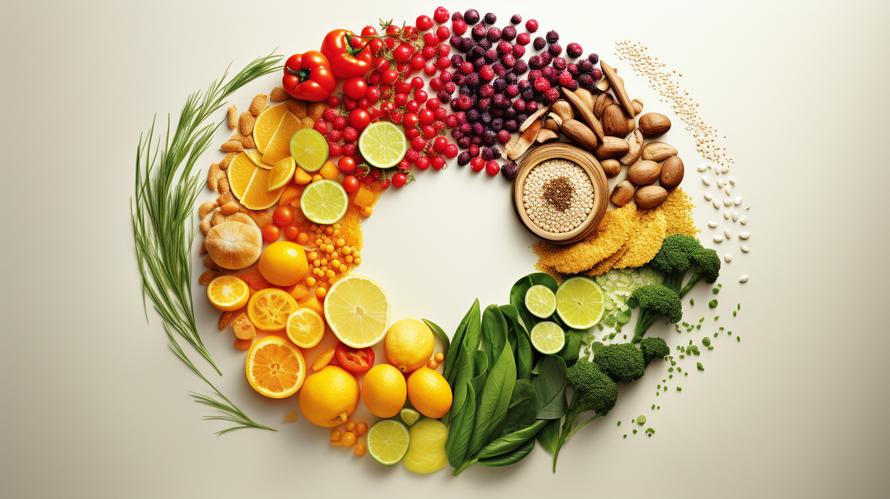Did you know that glutton, the protein complex that gets a bad rap in health products, comes from the Latin word for glue? A fitting name, given that it gives elastic properties to dough. But the surprising thing is, gluten isn’t as horrific for your health as some labels might have you believe – In fact, it might not be bad for you at all!
The surge of gluten-free products on supermarket shelves is enough to make anyone question if they should go gluten-free. Labels boldly call out: “Gluten-FREE” or “NO gluten” as if gluten is an unmentionable monster, a dietary Voldemort that ‘Must Not Be Named.’ This notorious protein complex, found in wheat, rye, and barley, has been blamed for everything from digestive issues to weight gain to mental fog. It’s been demonized, ostracized, and pushed to the fringe of nutrition.
But here’s the truth about gluten-free diets that might surprise you: unless you have celiac disease or a gluten sensitivity, going gluten-free is unlikely to give you any significant health benefits.
Now, let’s dissect this widely misunderstood protein complex and debunk the common misconceptions surrounding a gluten-free lifestyle.
What is Gluten Anyway?
Gluten is a protein prevalent in wheat, barley, and rye and is the primary ingredient that gives bread its structure and chewiness. It’s almost impossible to replicate these textures without gluten, which is why many gluten-free products have an entirely different texture compared to their glutinous counterparts.
The gluten controversy started when a small percentage of the population was identified as having celiac disease. Celiac disease is an autoimmune disorder where the ingestion of gluten leads to the damage in the small intestine. Those affected must avoid gluten; otherwise, the body’s immune response attacks the small intestine, leading to malnourishment, among other issues.
As awareness of celiac disease grew, so did curiosity and concern about gluten. Some people realized that they felt better when they didn’t consume gluten, even though they didn’t have celiac disease. This non-celiac gluten sensitivity led to the growth of the gluten-free trend.
Cracking the Gluten-Free Myth
Most who switch to a gluten-free diet believe it would lead to better health and weight loss. However, the evidence doesn’t back up these beliefs unless you have celiac disease or gluten sensitivity.
According to a review in the Journal of Medicinal Food, there’s “no evidence to suggest that following a gluten-free diet has any significant benefits in the general population.” In fact, the paper asserts that going gluten-free could even be detrimental, considering it might lead to deficiencies in crucial nutrients.
A gluten-free diet often has fewer vitamins, less fiber, and more sugar. Gluten-free products like bread, cookies, and pasta often substitute the missing gluten with additional fats and sugars to mimic the taste and texture of gluten-containing foods. This counteracts any potential weight loss or health benefits one might expect from ditching gluten.
With our bodies, a complex symphony performs processes that help us breathe, live, and thrive. A seemingly small change in our diet, like going gluten-free, could disrupt harmonious sections of this symphony, like nutrient absorption, leading to unforeseen health implications.
Making the Gluten Decision
A gluten-free diet isn’t necessarily healthier unless you’re someone with celiac disease or gluten sensitivity. Around 1% of the world’s population has celiac disease, and a slighter larger percentage has gluten sensitivity. If gluten doesn’t trigger inflammation or discomfort in your body, there’s no pressing reason to banish it.
However, if you feel that gluten might be causing health issues, the sensible approach is to consult a healthcare professional for testing. Blindly following a gluten-free diet without professional advice could do more harm than good.
To sum it up, those magic words on the pack of your favorite breakfast cereal – “Gluten-Free!” – might not be as magical for your health as you thought. Eat wisely, nutrients are what matter! A balanced meal with whole grains, lean meats, fruits and veggies still forms the cornerstone of good health.
While we cook and eat, let’s remember the words of the wise Hippocrates: “Let food be thy medicine and medicine be thy food”… but let’s also remember, he ate bread, gluten and all!



